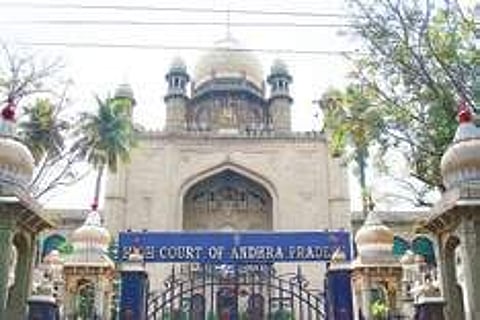

HYDERABAD: Appellate courts can acquit convicts in murder cases if the prosecution fails to establish a clear chain of circumstances that led to the crime, particularly when the evidence is circumstantial. A prosecution’s failure to conduct Test Identification Parade can become fatal to its case in spite of recovery of material/objects allegedly used in the crime. The evidence is not sacrosanct unless a proper test identification parade is conducted, as prescribed by the Criminal Rules of Practice.
In one such a case before the High Court, the division bench allowed the appeal of a convict by setting aside the life imprisonment imposed against him by a lower court. The bench pointed out that vital links in the chain of circumstances are missing in the case.
The case of the prosecution is that the police had registered a case based on a report by a person who had come to know about a murder in his neighbourhood. The person then visited the place where he found an unknown female lying dead in a pool of blood and with injury marks on her neck and abdomen. He contended the woman was killed the previous night by unknown persons. After postmortem, the cause of death was established as ‘cut-throat wound of neck’.
Based on the facts and circumstances, police apprehended the appellant-accused and brought him to the police station where he voluntarily confessed to the said crime. He led the police to the place of offence where they recovered the knife which was used in the crime, and also recovered the silver anklets of the deceased which were pledged in a pawn shop. On consideration of oral evidence, the lower court convicted him for the offence and sentenced him to suffer life imprisonment.
After hearing the case and perusing the material on record, the HC bench found that the case was based on circumstantial evidence as no eye-witnessed has witnessed the crime. They also noted that the appellant was apprehended by the police a year after the date of the alleged offence. As for alleged recovery of silver anklets, no panchanama was conducted in the presence of any witnesses.
In the absence of the mediators’ report and the failure of the prosecution to produce the receipt of the pawn shop before the lower court, no credibility can be attached to the claim of the prosecution that the silver anklets were recovered from the possession of a pawnbroker. Referring to the alleged recovery of knife from a collapsed room under asbestos sheets, the scene of offence, and based on a confessional statement by the appellant, the bench pointed out that the police visited the scene of the offence more than once. Therefore, it is highly improbable that police did not find the weapon during their previous visits. From these facts, it is reasonable to presume that the prosecution has planted the knife in order to falsely implicate the appellant.
“If we eschew silver anklets and knife from consideration, the vital links in the chain of circumstances are totally missing in this case. Therefore, we have absolutely no doubt in our mind that the prosecution has falsely implicated the appellant and secured false conviction”, the bench opined and allowed the appeal by setting aside the conviction and sentences recorded against the appellant, and directed the authorities to set the appellant at liberty forthwith, if he is not required in any other case or crime.